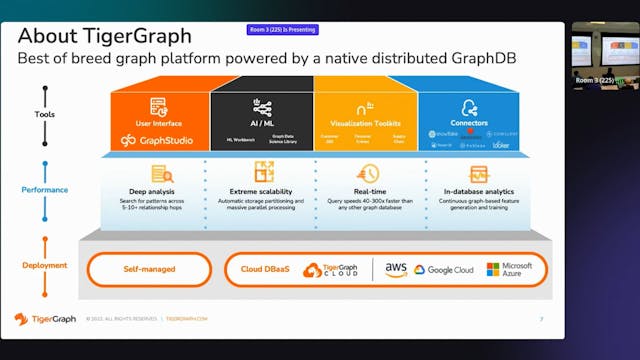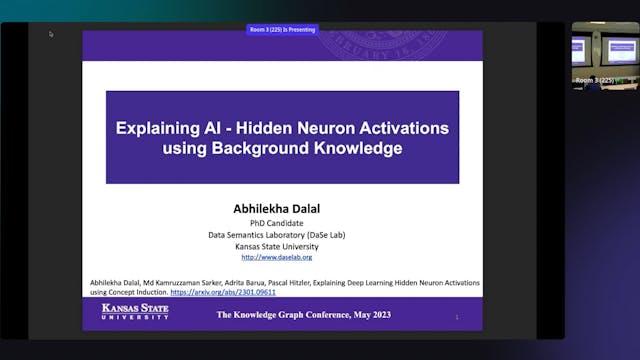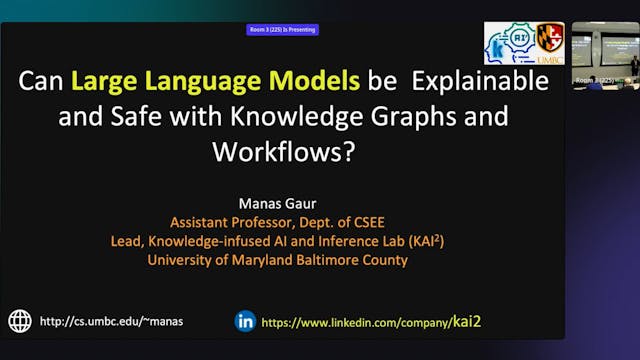Using a Hybrid AI Approach to Automatically Extract Recommendations
Deep Learning for and with Knowledge Graphs Track
•
23m
The emerging landscape of deep learning and knowledge graph technologies provides vast opportunities to use public repositories as a source of knowledge for recommendations. Often, the knowledge is represented as a knowledge graph, and a recommendation regarding an entity instance is extracted by querying it. For example, a knowledge graph representation can be used for describing cybersecurity domain entities, such as adversarial techniques and their countermeasures. We can use this graph to recommend a specific countermeasure given a system-specific detected technique. This approach raises few challenges. First, how to correlate between the instance entity and the suitable object in the knowledge graph? Second, how to extract the recommendations from the graph? We developed a hybrid AI approach that addressed these challenges by utilizing deep learning-based language models and graph traversal algorithms. In this session we will demonstrate how we automatically categorized vulnerability descriptions discovered in specific systems according to their adversarial techniques and recommended relevant countermeasures.
Up Next in Deep Learning for and with Knowledge Graphs Track
-
Graph Embedding Techniques - Matrix F...
Graph embeddings can be used for a variety of applications, including recommendation, fraud detection, and other machine learning tasks. In this work, we aim to walk through various different embedding techniques, starting with spectral approaches, moving towards graph neural networks, and finall...
-
Explainable AI using Background Knowl...
One of the current key challenges in Explainable AI is in correctly interpreting activations of hidden neurons. It seems evident that accurate interpretations thereof would provide insights into the question what a deep learning system has internally detected as relevant on the input, thus liftin...
-
Targeted Knowledge Infusion To Make C...
Conversational Systems (CSys) represent practical and tangible outcomes of advances in NLP and AI. CSys see continuous improvements through unsupervised training of large language models (LLMs) on a humongous amount of generic training data. However, when these CSys are suggested for use in domai...



